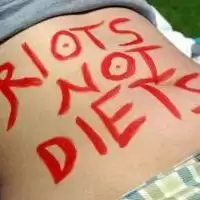-
Welcome to Celiac.com!
You have found your celiac tribe! Join us and ask questions in our forum, share your story, and connect with others.
-
Celiac.com Sponsor (A1):
Celiac.com Sponsor (A1-M):
-
Get Celiac.com Updates:Support Our Content
Food Journaling to Find the Gas Culprit
-
Get Celiac.com Updates:Support Celiac.com:
-
Celiac.com Sponsor (A17):
Celiac.com Sponsor (A17):
Celiac.com Sponsors (A17-M):
-
Recent Activity
-
- DebD5 commented on Scott Adams's article in Spring 2026 Issue1
The Dark Side of Gluten-Free: Counterfeit Labels and Global Food Safety Failures
Exactly. What about King Arthur gluten free flour selling a gluten free bread flour containing “gluten free wheat starch” and says in allergens “contains wheat.” I don’t care if it contains a trace amount of wheat ok’ed by the food industry. For a celiac…100% gluten free and that’s all is acceptable. Hard alcohols and ciders and hard seltzers say gluten free... -
- Jmartes71 replied to Jmartes71's topic in Doctors6
Second chance
Thats the thing, diagnosed in 1994 before foods eliminated celiac by biopsy colonoscopy at Kaiser in Santa Clara now condo's but it has to be somewhere in medical land.1999 got married, moved, changed doctor's was with former for 25 years told him I waz celiac and that.Fast forward to last year.i googled celiac specialist and what popped up was a former... -
- trents replied to EssexMum's topic in Post Diagnosis, Recovery & Treatment of Celiac Disease2
Concerning GP advice
Welcome to the celiac.com community @EssexMum! First, let me correct some misinformation you have been given. Except in the case of what is known as "refractory" celiac disease, which is very rare, it is not true that the "fingers" will not grow back once a consistently gluten free diet is adopted. Celiac disease is an autoimmune condition whereby the... -
- Scott Adams replied to Florence Lillian's topic in Post Diagnosis, Recovery & Treatment of Celiac Disease5
Gluten-Mimicking Proteins that can affect some Celiac individuals.
Here are some articles on cross-reactivity and celiac disease: -
- knitty kitty replied to HectorConvector's topic in Related Issues & Disorders327
Terrible Neurological Symptoms
@HectorConvector, Here are some articles about "dry Beriberi" and neuropathy. I hope you've been able to acquire thiamine hydrochloride or Benfotiamine. I'm concerned. Dry Beriberi Due to Thiamine Deficiency Associated with Peripheral Neuropathy and Wernicke's Encephalopathy Mimicking Guillain-Barré syndrome: A Case Report and Review of the ...
-







Recommended Posts
Create an account or sign in to comment
You need to be a member in order to leave a comment
Create an account
Sign up for a new account in our community. It's easy!
Register a new accountSign in
Already have an account? Sign in here.
Sign In Now